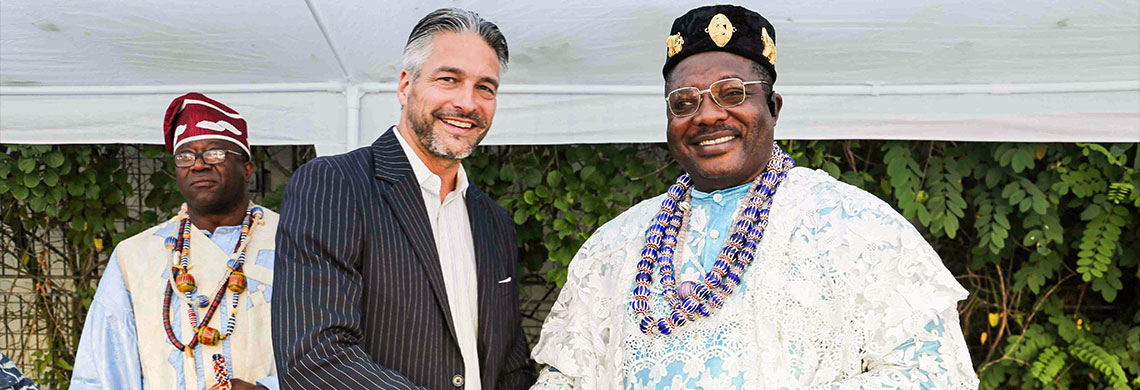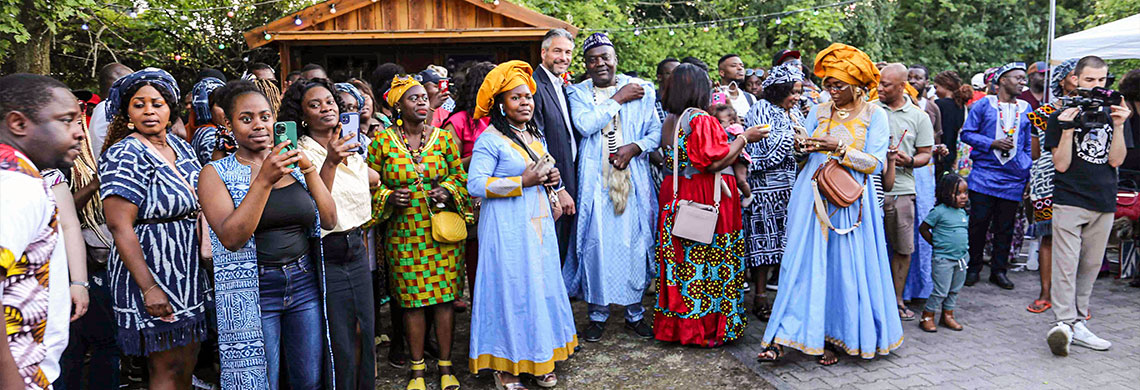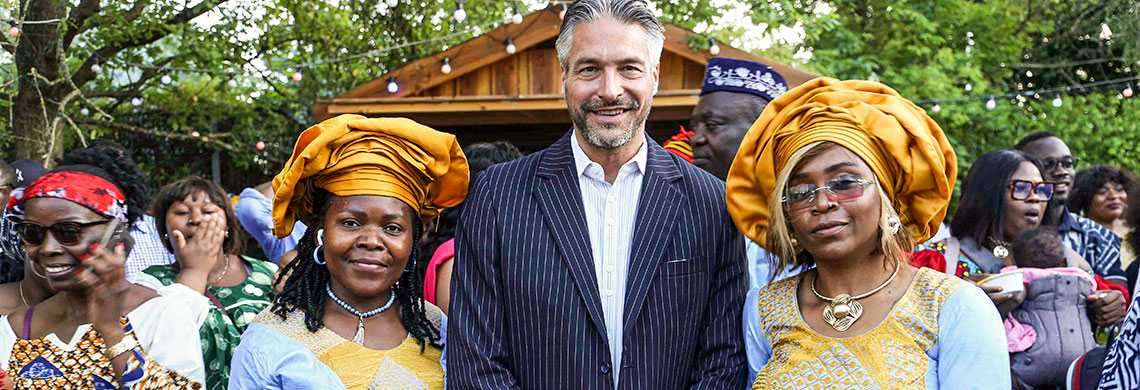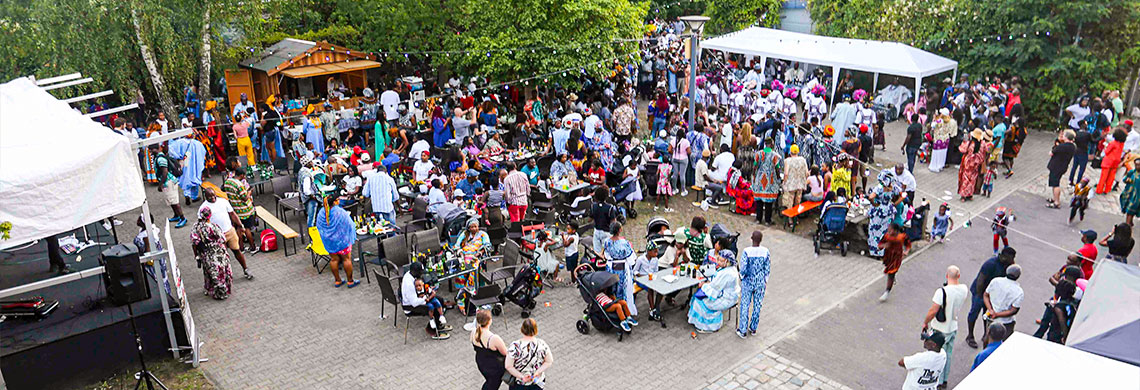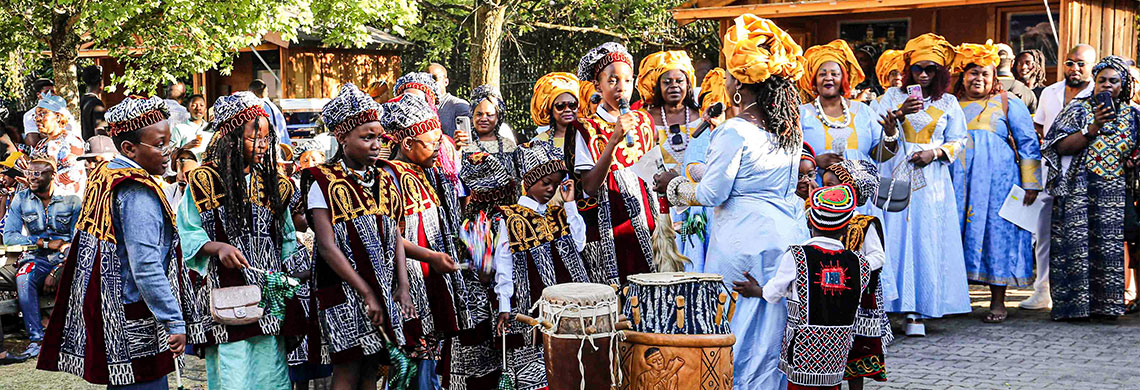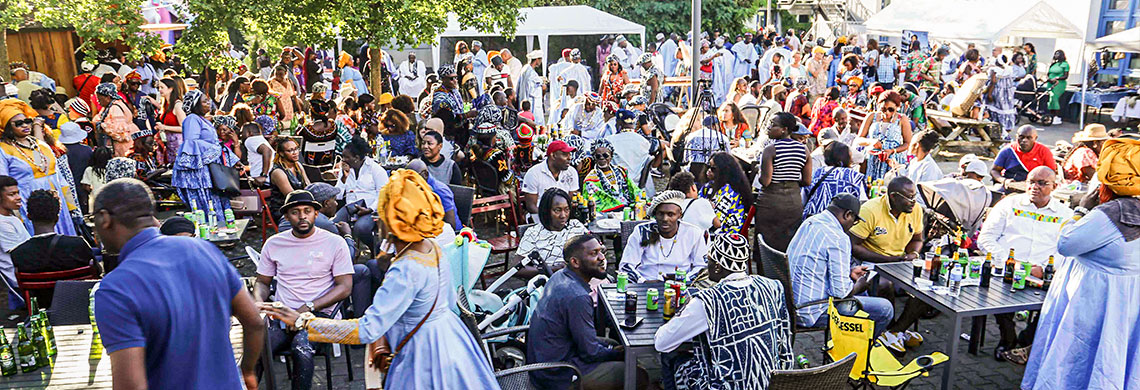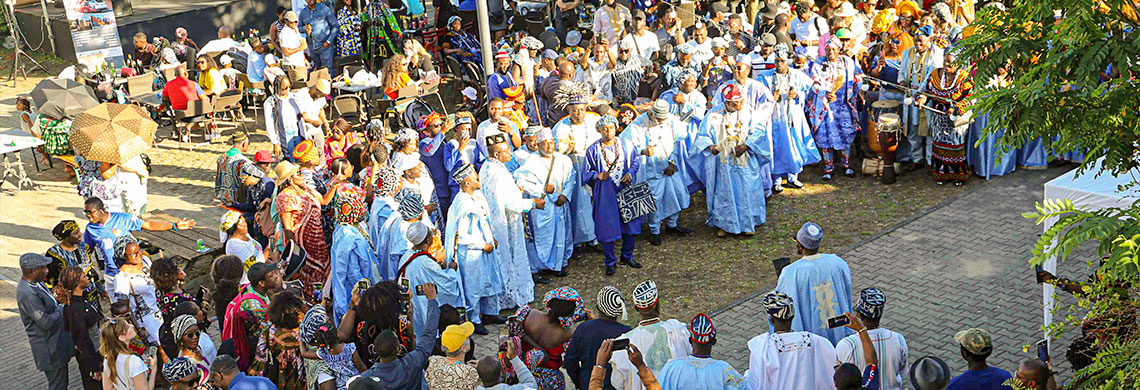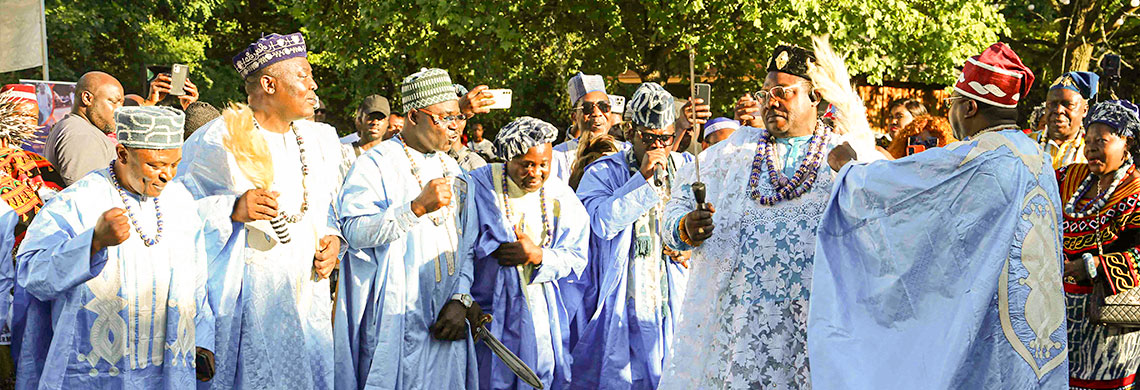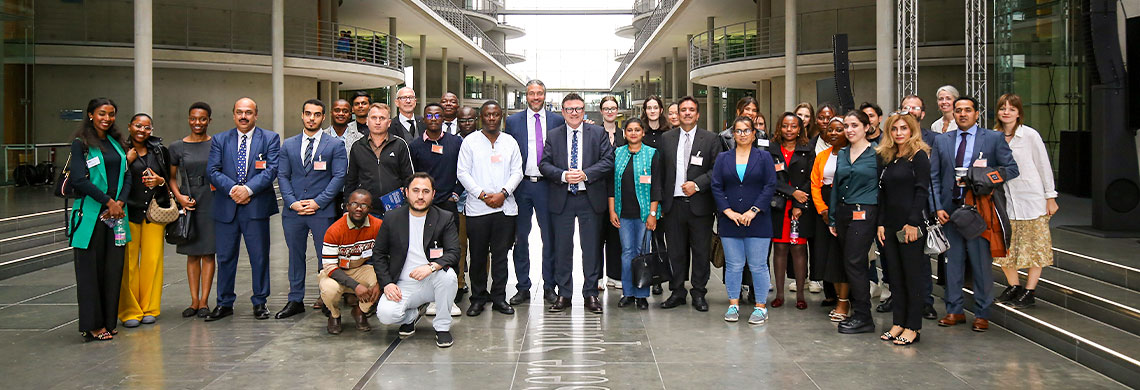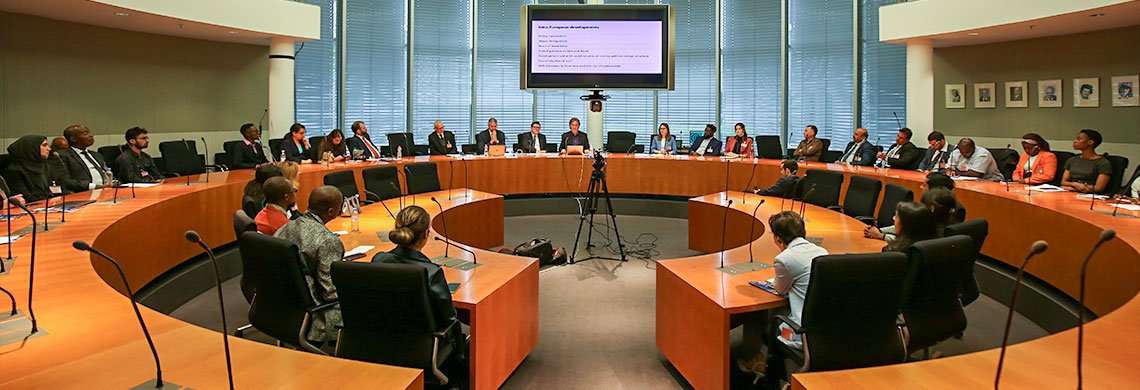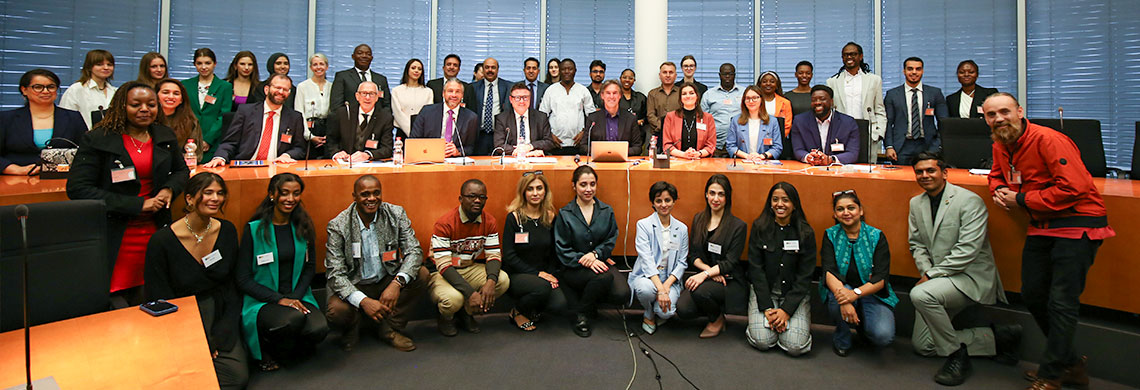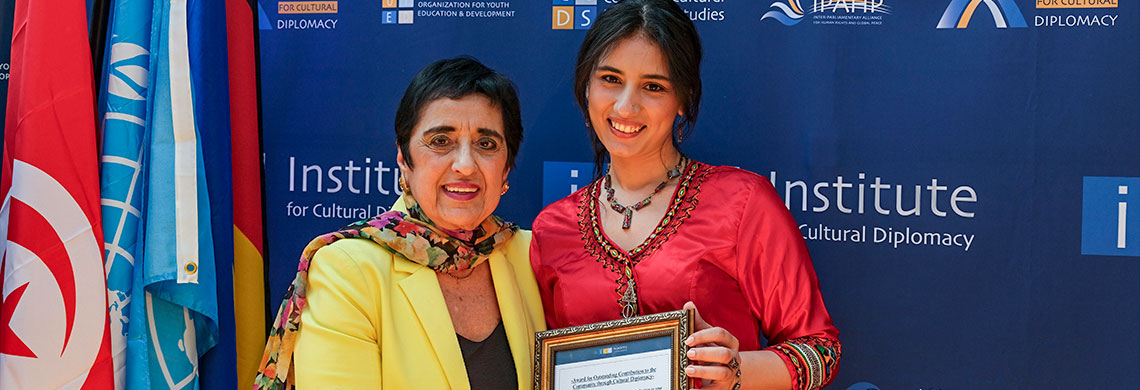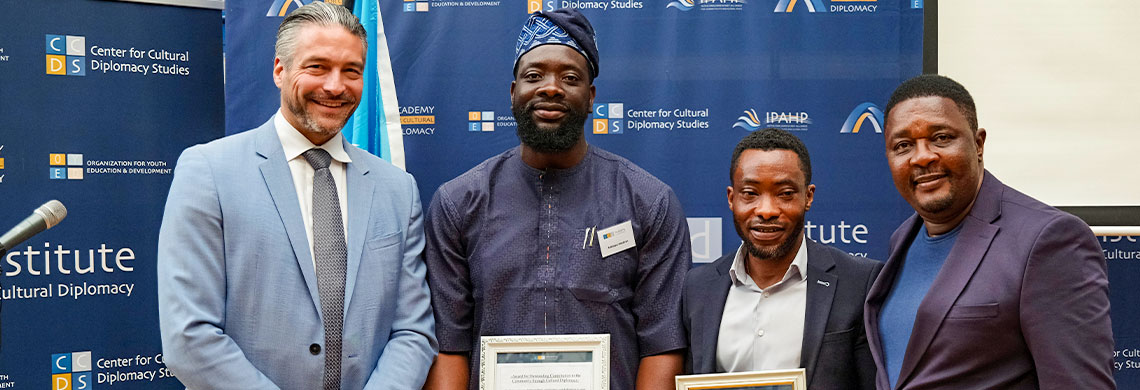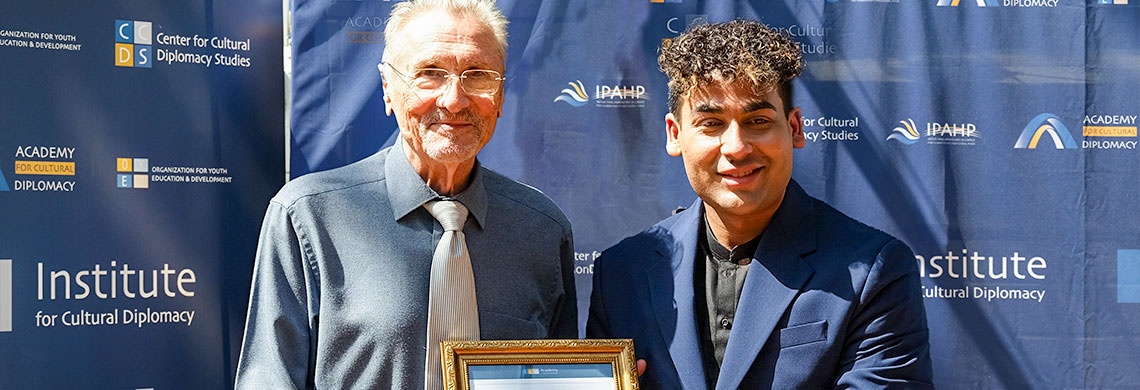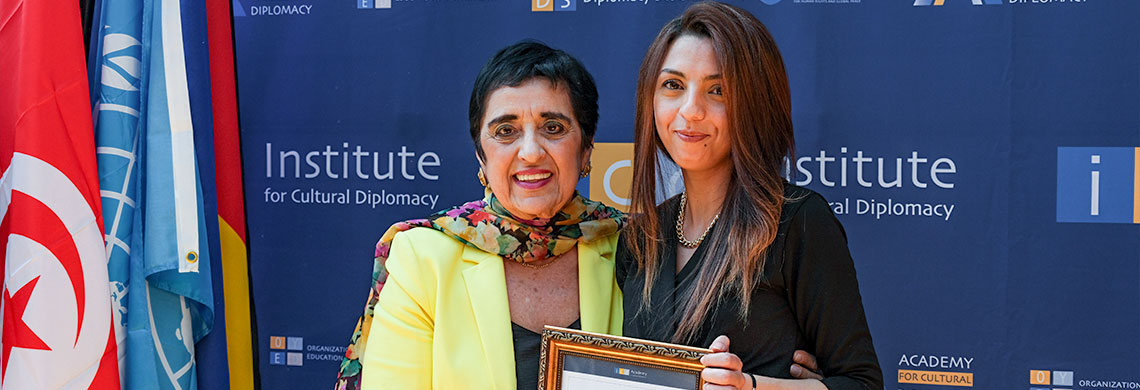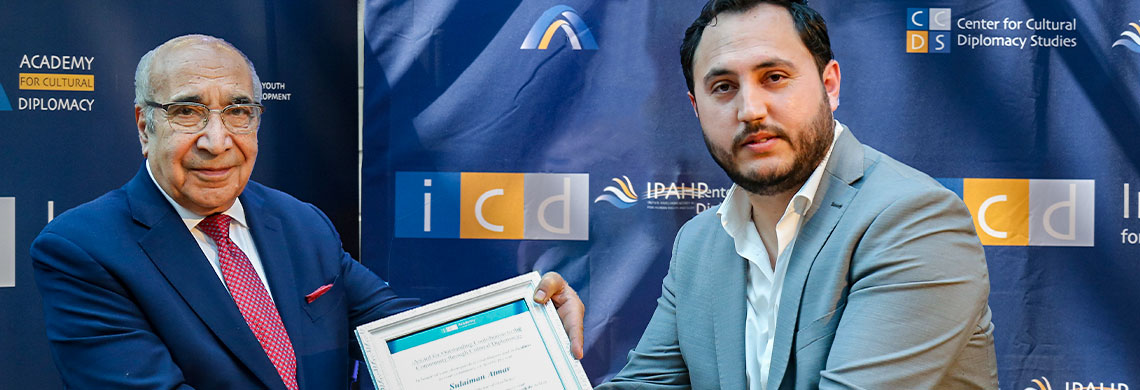Young Leaders´ Forums
Cultural Diplomacy in the Mediterranean
Report of Day 1: Introductions, the Zentrum der Moderner Orient, and the Friedrich Ebert Foundation
The day began with an introduction to cultural diplomacy by ICD Director and Founder Mark Donfried. He spoke about its role in international relations both in the past and present. In addition, he detailed the need for dialogue between cultures and gave an insight into institutions such as the Alliance Française dating back to 1883, which have a long history of supporting cultural exchange.After the break, the students traveled together to the Zentrum der Moderner Orient (Modern Oriental Centre) where they followed a lecture entitled ‘Europe in the Middle East Program – cities compared’ by Ms. Nora Lafi. The lecture explained in detail what research opportunities the Zentrum der Moderner Orient offers to those interested in Middle Eastern studies. After the lecture in the ZMO, the participants traveled to the America Haus where they listened to another lecture given by Ms. Anna Kellner and Ms. Julia Blasius from the Friderich-Ebert Stiftung in Berlin. The speakers were also present after the lecture and were willing to answer additional questions from the public.
In the evening, the participants enjoyed a group dinner together at Berlin’s En Passant restaurant in Savignyplatz, in the heart of West Berlin.
Report of Day 2: Leadership Initiatives, the German Foreign Office, and the International Boat Party
The second day of the Cultural Diplomacy in the Mediterranean forum began with an extensive discussion lead by Dr. Martin Beck from the GIGA Institute (Hamburg), a specialist in the Middle East (lecture title: The lack of regional leadership in the Middle East). Questions such as “Is there a common regional leadership?’ and ‘Which nation is the regional leader in the Middle East?” were discussed during this lecture.The afternoon session was divided in two parts. In the first part the speaker Peter Rees (of the ICD) explained to the participants how the Leadership Initiatives work and what it actually means to organize a leadership initiative. In the second part the participants were divided into four groups with the aim of discussing and starting to develop their ideas and potential initiatives.
The young leaders then took part in a seminar at the Auswärtiges Amt (German Foreign Office) where the speaker, Ms. Barbara Wolf, spoke about the Mediterranean Union and the G8 BMENA initiative in general.
In the evening, the students were treated to a uniquely Berlin experience: drinks and conversation in the Eastern Comfort Boat on the Spree. The international crowd was in good spirits, and the lively Brazilian music was enjoyed by all.
Report of Day 3: Workshops and a Visit to the German Parliament
The third day began with an interactive workshop on ‘The Balkan's Identity within Europe and the Mediterranean’. After the formal introduction to the topic where the speaker Martin Wilhelm spoke about the development of common Balkan's identity the discussions between the young leaders ran simultaneously and provided a platform for exchanging ideas and opinions.After the lunch break the participants visited the German Parliament where Mr. Rainder Steenblock led them around the Parliament and gave a short introduction into its past and present developments. Mr. Steenblock, who is a Member of the EMPA (Euro-Mediterranean Parliamentary Assembly) among other roles, kindly explained how the usual day of a parliamentary runs and offered an insight into various questions from the participants during two-hour-long session.
The afternoon ended with a workshop in which the participants presented their academic papers related to the issue discussed in the Forum – Cultural Diplomacy in the Mediterranean.
In the evening the participants together visited an Egyptian restaurant and then set off to enjoy their free time in Berlin.
Report of Day 4: Focus on Turkey, and Sports as Cultural Diplomacy
The day began with an interactive workshop led by Alex Balistreri, Turkish Studies expert from Princeton University. The participants were given the chance to speak about Turkey's relationship with the EU. The workshop proved to be very interesting as the participants voiced their questions, expressing doubts and interests about the most contemporary and pressing issues in the region.In the afternoon Mr. Peter Rees from the ICD lectured about Sports as Cultural Diplomacy. He gave the young leaders important ideas of how to cope with leadership initiatives in the context of sport and invited them on stage where they presented the results of the group work in the Sports as Cultural Diplomacy seminar.
The afternoon ended with some leisure time. The participants were first given the chance to explore Berlin on their own and were later invited to join the German-Turkish Heritage Week in Amerika Haus.
Report of Day 5: Farewells and Concepts for the Future
In the morning of the last day, which was Saturday, the participants were first invited to join the good bye brunch in Eberswalder Strasse – one of the most relaxed areas of East Berlin. After the breakfast, the young leaders traveled together to the America Haus where they were given the opportunity to talk to ICD director Mark Donfried about what they learned during the week and what was expected for the future; through leadership initiatives such as those offered by the ICD, Mr. Donfried encouraged the CDM young leaders to promote cultural diplomacy between nations. The ICD hopes that the participants will develop short-term leadership initiatives that can help achieve these goals. Further, the forum provides a means to create long-term connections between the participants and the ICD; previous independent projects include the publication of newsletters and the organization of bilateral conferences. Young leaders are given confidence to use the people they meet and the resources that they have available to them from the ICD and from past experiences, and to use the ICD online forum to share documents, ideas and literature with other participants.Mark Donfried stated that the biggest challenge of cultural diplomacy is access to information, not race, class or gender. If we have the resources and the opportunity to communicate, it can be the key to understanding: “We must recognize a need somewhere and respond,” he said. “You are the ones who will determine what the future of cultural diplomacy will be. I certainly hope that it doesn’t end today.”

